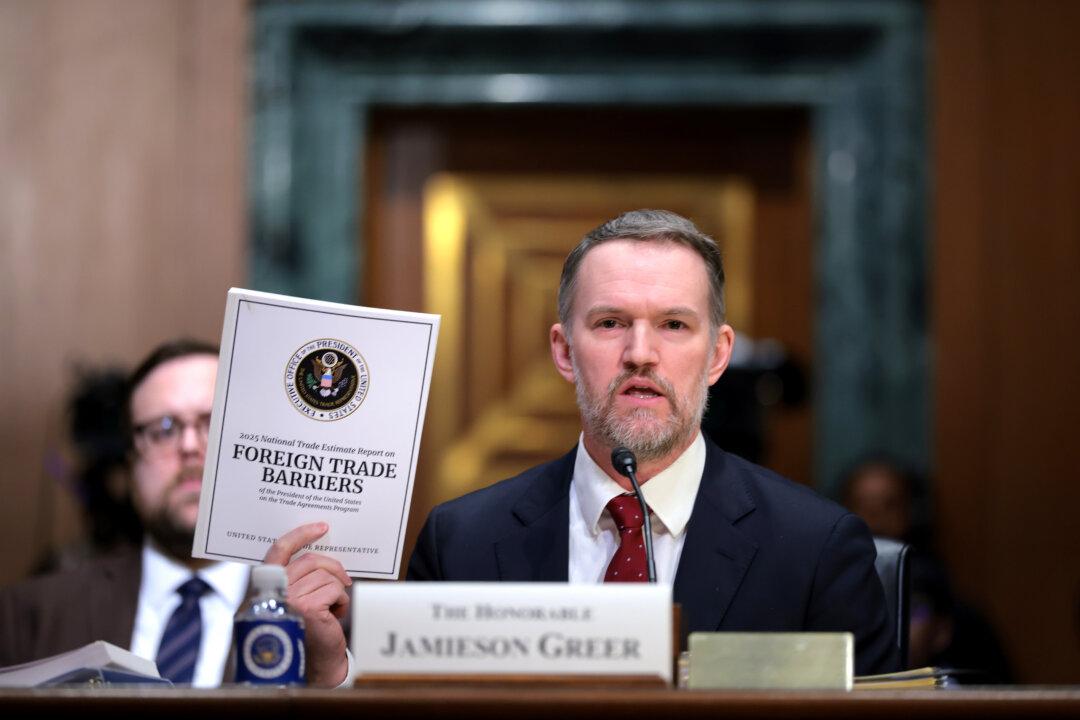WASHINGTON—As the United States and the world await the implementation of new tariffs from the Trump administration, U.S. Trade Representative Jamieson Greer fielded questions from concerned lawmakers in both parties.
The exchanges came during Greer’s testimony before the Senate’s finance committee on April 8. He will testify again before the House Ways and Means Committee on April 9.





